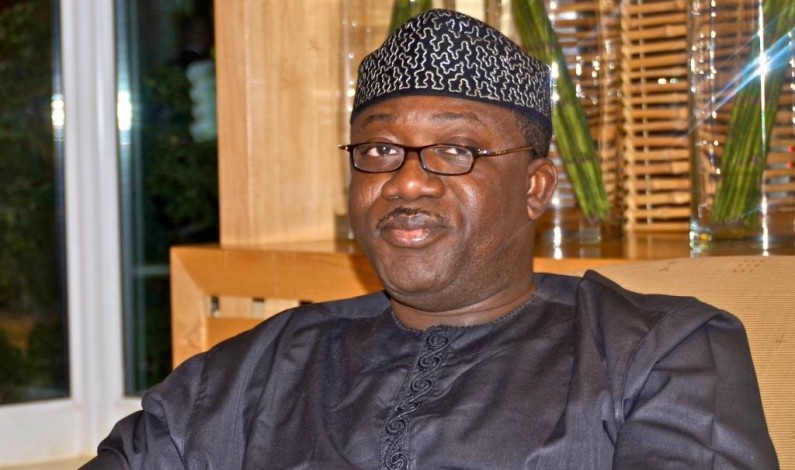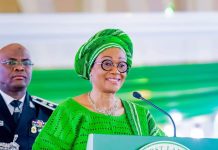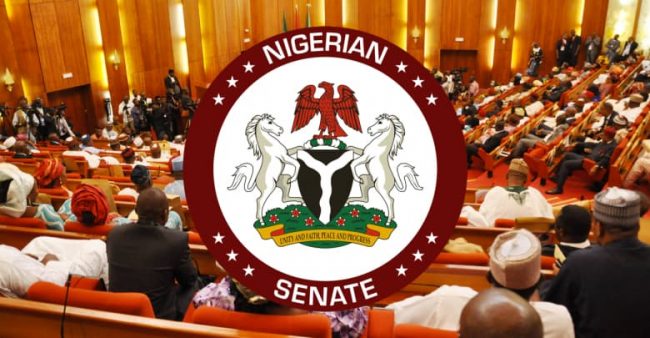- ICPC chairman demands parameters for appropriation
The Nigeria Governors Forum (NGF) Wednesday kicked against calls for the removal of security votes, insisting that doing so would be inimical to development.
NGF Chairman and Governor of Ekiti State, Dr. Kayode Fayemi, said in Abuja that the abolition of security votes as being advocated by many in the country would breed chaos in the polity instead of curbing corruption as is being widely believed.
He said there was no development without security.
The position of the governors came just as Chairman of the Independent Corrupt Practices and Other Related Offences Commission (ICPC), Prof. Bolaji Owasanoye, advocated parameters for appropriating and accounting for security votes without jeopardizing national security.
The NGF chairman was addressing discussants in Abuja at the quarterly policy dialogue on accountability for security votes, organized by the Anti-Corruption Academy of Nigeria (ACAN).
Fayemi’s topic for the keynote address was “Security Votes: Are they necessary? Are they legitimate?”
In his address, which was laced with quotes from various authorities and sources, including books written by such First Republic icons as Chief Jerome Udoji, he said security votes had existed even before the military came to power in Nigeria.
He said doing away with them, instead of addressing corruption, would hinder development and security.
According to him, the answer to the question as to whether security votes are necessary is an emphatic “Yes” and buttressed his arguments with copious anecdotes from the United States Congress, several publications and examples.
The Ekiti governor said the abolition of security votes would slow down development, increase insecurity and impair the various states’ response to emergencies.
Fayemi argued against those who said security votes were illegal, quoting from the constitution and other relevant authorities to emphasise the fact that security votes are not only legal but have been in existence since the colonial era.
“Governments all over the world have security votes but they may not call it the same name as ours because for obvious reasons, government business may not necessarily be all in the public glare,” he stated.
Fayemi attributed the Iran Contra affair and other government action in South America as products of the use of security votes, which those governments conveniently put away from the eyes of their citizens.
However, the governor stated that in his state every transaction involving security votes are well documented and receipted but added that unless something is done to stop the abuse of security votes, it would continue to be rife.
Fayemi also made a case for the creation of state police, which he prescribed as the antidote to the expenditure being incurred by governors in the types of assistance that governors render to the Nigeria Police Force.
He called for partnership between the NGF and the ACAN to work out modalities on how to ensure accountability and transparency in the utilisation of security votes in line with global best practices.
Earlier, the Provost of the Anti-Corruption Academy of Nigeria, Professor Sola Akinrinade, had while welcoming the guest speaker, said removing security votes would be counter-productive.
Meanwhile, the Chairman of ICPC, Owasanoye has advocated parameters for appropriating and accounting for security votes without jeopardising national security.
He said the mechanism would ensure that secrecy is not allowed to void accountability in the management of security votes.
Owasanoye said this was necessary because accountability was key to diminishing corruption.
He added that security votes were an easy and attractive route for stealing public funds and a veritable avenue for abuse of public trust and escalation of poverty. “In other words, the permission of appropriation for security votes has ironically pushed up rather than diminish insecurity. This is because the money that should ordinarily be available for social and economic development is appropriated as security votes and used discretionarily.
“The 2019 Budget as appropriated by law, 162 Ministries Departments and Agencies (MDAs) had monies appropriated as security votes. The MDAs include boards, committees, national parks, among others,” he stated.
According to him, the number and categories of MDAs given security votes suggested that something is wrong with the parameters for determining the agencies entitled to security votes, saying that it was clear from the current approach to budgeting for security votes that no principle is being followed.
“This is clear from the quantum and range of sums appropriated in the 2019 budget for MDAs where the lowest amount for security votes was N3,600 while the highest amount was N4.20 billion.
“There was a lacuna in the budgeting process and lack of guiding principles on security votes. Furthermore, there is the erroneous impression that security votes are not to be accounted for,” the ICPC chairman added.
Source: THISDAY












